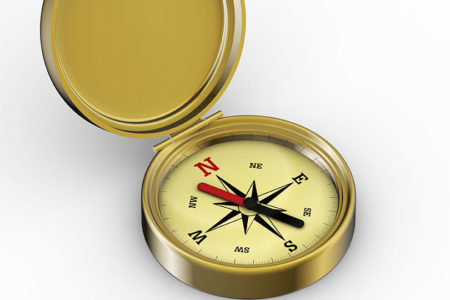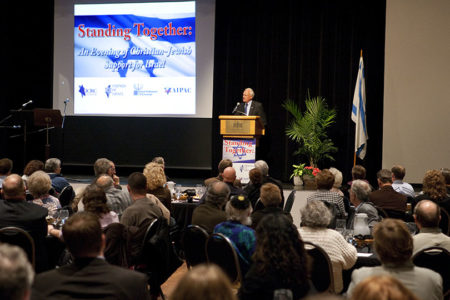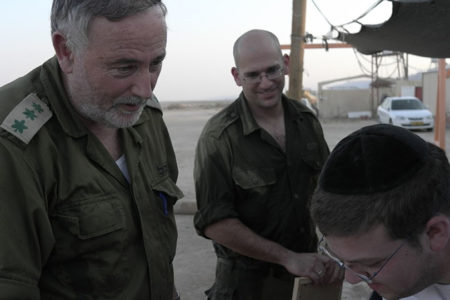From Bill Sutter’s Desk Nov/Dec 2011
“Thus says the Lord Gᴏᴅ: ‘This is Jerusalem; I have set her in the midst of the nations and the countries all around her’” (Ezek. 5:5).
Every trip to Israel is a life-impacting experience. God’s Word comes alive there, especially at the Sea of Galilee and in the towns to its north, where much of Jesus’ ministry took place. Even seemingly insignificant places spring from the Bible’s pages, like the Valley of Elah where Israel’s young shepherd David defeated Goliath, the Philistine champion of war.
Arriving in Jerusalem, you sense there’s no place like it. From the Orthodox Jews to the Muslim Arabs to the blaring traffic, everything seems upfront.
It was at the Western Wall in Jerusalem on my first trip to Israel more than 20 years ago that I experienced my most emotional response to the many sites we visited. Amid large crowds engaged in religious and ceremonial activities, I was struck by the truth of the prophet Ezekiel’s words. I was in the center of the world.
Jerusalem is mentioned 600 times in the Old Testament and 160 times in the New Testament. In Scripture, to go north means to go north from Jerusalem. To go south means to go south from Jerusalem. Several ancient world maps reflect this truth. One even depicts Europe, Asia, and Africa as three petals of a flower, with the center sta-men being Jerusalem.
In fact, the Institute for Creation Research (ICR, www.icr.org) has done a fascinating computer-based study confirming Jerusalem’s geographic centrality. In addition to its geographic significance, a huge measure of Jerusalem’s importance rests in its role as the spiritual center of the world. Its existence today is a powerful witness that God is in control. Jerusalem has repeatedly been fought over, plundered, burned, and destroyed. However, God made a covenant with the city in Ezekiel 16:8: “Yes, I swore an oath to you and entered into a covenant with you, and you became Mine.”
Jerusalem today testifies that God keeps His covenants. It is the salvation center of the earth. Jesus said, “Salvation is of the Jews” (Jn. 4:22). Jerusalem is where Christ died, was buried, and rose again—it is the focus of His plan of redemption. Jerusalem is the Mount of Olives, the Garden of Gethsemane, Jesus’ Palm Sunday entry, the way of the cross, the empty tomb, and Jesus’ ascension into heaven (Acts 1:9–11).
Prophetically, Jerusalem is the promise center of the world. Our destiny as believers is linked to the city of Jerusalem. Our most dramatic moment of promise will be when we return there with our Savior. Then Israel will be fully restored, both politically as a nation and spiritually to the Lord. We look forward to the tremendous promise of Isaiah 2:3:
Many people shall come and say, “Come, and let us go up to the mountain of the Lᴏʀᴅ, to the house of the God of Jacob; He will teach us His ways, and we shall walk in His paths. For out of Zion shall go forth the law, and the word of the Lᴏʀᴅ from Jerusalem.”
Today we study prophecy and are blessed. Then we will participate personally with our Savior.
Unfortunately, Jerusalem continues to be a storm center. Though its name means “foundation of peace,” its history has been marked by war. It has been destroyed by the Romans, the crusaders, and the Muslims. It has been divided by walls, barbed wire, and fences. Israel unified Jerusalem in 1967, making it available to all people. However, world leaders continue to talk about dividing it again. The UN seems to work day and night to deny a Jewish/Israeli Jerusalem, and UN efforts are underway to “internationalize” the city by wresting it from Israel’s control.
U.S. President Barack Obama periodically puts forth concepts that would bar the Jewish people from significant parts of the city. And radical Islam has rallied its forces in opposition to God’s covenants with Israel and its capital, Jerusalem.
The world’s desire for Jerusalem directly conflicts with God’s design, making it even more important that we heed His injunction in Psalm 122:6: “Pray for the peace of Jerusalem: May they prosper who love you.”







